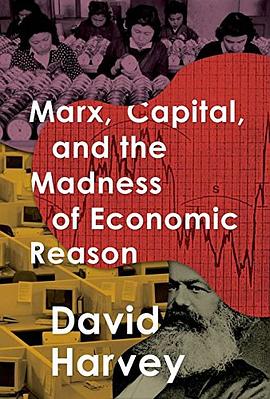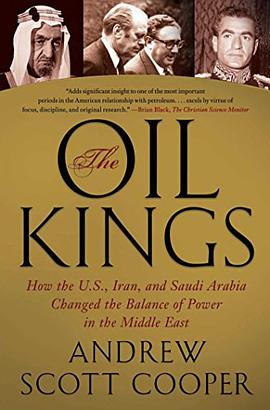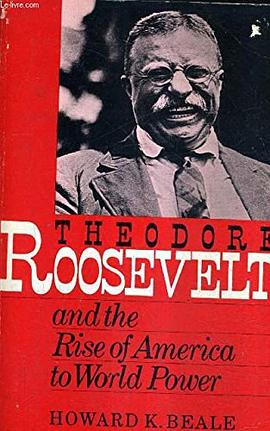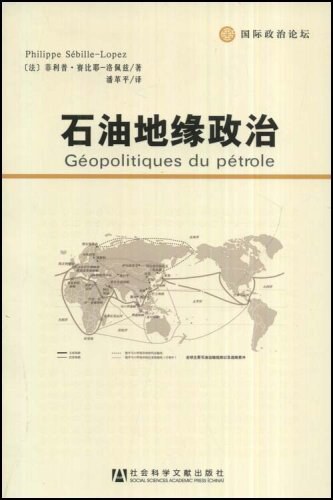政治學
Birth of the Leviathan 豆瓣
作者:
Thomas Ertman
Cambridge University Press
1997
- 1
For many years scholars have sought to explain why the European states which emerged in the period before the French Revolution developed along such different lines. Why did some become absolutist and others constitutionalist? What enabled some to develop bureaucratic administrative systems, while others remained dependent upon patrimonial practices? This book presents a new theory of state-building in medieval and early modern Europe. Ertman argues that two factors - the organisation of local government at the time of state formation and the timing of sustained geo-military competition - can explain most of the variation in political regimes and in state infrastructures found across the continent during the second half of the eighteenth century. Drawing on insights developed in historical sociology, comparative politics, and economic history, this book makes a compelling case for the value of interdisciplinary approaches to the study of political development.
The New Imperialism 豆瓣
作者:
David Harvey
Oxford University Press
2005
- 2
People around the world are confused and concerned. Is it a sign of strength or of weakness that the US has suddenly shifted from a politics of consensus to one of coercion on the world stage? What was really at stake in the war on Iraq? Was it all about oil and, if not, what else was involved? What role has a sagging economy played in pushing the US into foreign adventurism and what difference does it make that neo-conservatives rather than neo-liberals are now in power? What exactly is the relationship between US militarism abroad and domestic politics? These are the questions taken up in this compelling and original book. Closely argued but clearly written, 'The New Imperialism' builds a conceptual framework to expose the underlying forces at work behind these momentous shifts in US policies and politics. The compulsions behind the projection of US power on the world as a 'new imperialism' are here, for the first time, laid bare for all to see. This new paperback edition contains an Afterword written to coincide with the result of the 2004 American presidential election.
Marx, Capital, and the Madness of Economic Reason 豆瓣
作者:
David Harvey
Oxford University Press
2017
- 11
Marx's Capital is one of the most important texts of the modern era. The three volumes, published between 1867 and 1883, changed the destiny of countries, politics and people across the world - and continue to resonate today. In this book, David Harvey lays out their key arguments.
In clear and concise language, Harvey describes the architecture of capital according to Marx, placing his observations in the context of capitalism in the second half of the nineteenth century. He considers the degree to which technological, economic and industrial change during the last 150 years means Marx's analysis and its application may need to be modified.
Marx's trilogy concerns the circulation of capital: volume I, how labour increases the value of capital, which he called valorisation; volume II, on the realisation of this value, by selling it and turning it into money or credit; volume III, on what happens to the value next in processes of distribution.
The three volumes contain the core of Marx's thinking on the workings and history of capital and capitalism. David Harvey explains and illustrates the profound insights and enormous analytical power they continue to offer in terms that, without compromising their depth and complexity, will appeal to a wide range of readers, including those coming to the work for the first time.
In clear and concise language, Harvey describes the architecture of capital according to Marx, placing his observations in the context of capitalism in the second half of the nineteenth century. He considers the degree to which technological, economic and industrial change during the last 150 years means Marx's analysis and its application may need to be modified.
Marx's trilogy concerns the circulation of capital: volume I, how labour increases the value of capital, which he called valorisation; volume II, on the realisation of this value, by selling it and turning it into money or credit; volume III, on what happens to the value next in processes of distribution.
The three volumes contain the core of Marx's thinking on the workings and history of capital and capitalism. David Harvey explains and illustrates the profound insights and enormous analytical power they continue to offer in terms that, without compromising their depth and complexity, will appeal to a wide range of readers, including those coming to the work for the first time.
Corporations Are Not People 豆瓣
作者:
Jeffrey D. Clements
Berrett-Koehler Publishers
2012
- 1
Imperialism; A Study 豆瓣
作者:
John Atkinson Hobson
TheClassics.us
2013
- 9
The German Panic 豆瓣
作者:
J.A Hobson
Duff Press
2010
- 2
Peripheries and Center 豆瓣
作者:
Jack P. Greene
W. W. Norton & Company
1990
- 5
An analysis of the development of the political relationship between Britain and her American colonies between 1607 and 1788.
The Oil Kings 豆瓣
作者:
Andrew Scott Cooper
Simon & Schuster
2012
- 9
“Relying on a rich cache of previously classified notes, transcripts, cables, policy briefs, and memoranda, Andrew Cooper explains how oil drove, even corrupted, American foreign policy during a time when Cold War imperatives still applied,”* and tells why in the 1970s the U.S. switched its Middle East allegiance from the Shah of Iran to the Saudi royal family. Amid the oil shocks of the early 1970s, there was one man the U.S. could rely on: the Shah of Iran. The Shah sold us oil; we sold him weapons. But the U.S. and other industrialized economies could not tolerate repeated annual double digit increases in oil prices. During the 1976 election campaign, President Gerald Ford decided that he had to find a country that would break the OPEC monopoly and sell the U.S. oil more cheaply. On the advice of Treasury Secretary William Simon—and against the advice of Secretary of State Henry Kissinger—Ford made a deal to sell advanced weaponry to the Saudis in exchange for a more moderate price hike in oil. The Shah’s economy was destabilized, and disaffected elements mobilized to overthrow him. The U.S. had embarked on a long relationship with the autocratic Saudi kingdom that continues to this day. Brilliantly reported and filled with astonishing details about some key figures of the time, The Oil Kings is a new history of an era that we thought we knew, an era when momentous events occurred that still reverberate today.
Spy Schools 豆瓣
作者:
Daniel Golden
Henry Holt and Co.
2017
- 10
Theodore Roosevelt and the Rise of America to World Power 豆瓣
作者:
Howard K. Beale
The Johns Hopkins University Press
1984
- 2
The Social Dynamics of Technology 豆瓣
作者:
Marcia-Anne Dobres (ed.)
/
Christopher R. Hoffman (ed.)
Smithsonian Institution Press
1999
- 3
The Strange Death of Europe 豆瓣
作者:
道格拉斯·穆雷
Bloomsbury Continuum
2017
- 9
The Commanding Heights 豆瓣
作者:
Daniel Yergin
/
Joseph Stanislaw
Free Press
2002
- 4
Book Description
The Pulitzer Prize-wimming author of The Prize joins a leading expert on the global economy to present an incisive narrative of the risks and opportunities that are emerging as the balance of power shifts around the world between governments and markets -- and the battle over globalization comes front and center. The Commanding Heights is essential for understanding the struggle over the "new rules of the game" for the twenty-first century.
Amazon.com
The "commanding heights," according to Pulitzer Prize-winner Daniel Yergin and international business advisor Joseph Stanislaw, are those dominant enterprises and industries that form the high economic ground in nations around the globe. In their analysis of the new world economy, The Commanding Heights: The Battle Between Government and the Marketplace That Is Remaking the Modern World, they examine "the individuals, the ideas, the conflicts, and the turning points" that are responsible. And by considering events such as the ongoing Asian monetary crisis, they suggest what the ultimate interconnection of financial markets might mean in the future.
The Wall Street Journal, Kenneth Minogue
Daniel Yergin and Joseph Stanislaw write clearly and have the journalist's talent for fixing personalities in our minds with biographical detail. No one could ask for a better account of the world's political and economic destiny since World War II.
The New York Times Book Review, Jeffrey E. Garten
It is an extraordinarily ambitious undertaking, combining the history of milestone events in countries as diverse as France and India, the biography of leaders as different as Margaret Thatcher and Deng Xiaoping and the evolution of ideas ranging from Keynesian economics ... to the Chicago school of free markets. But it is also a brilliantly successful project, a colorful and even suspenseful story of how the world has been transformed over the last half-century.
From Booklist
Yergin and Stanislaw's global tour d'horizon doesn't extrapolate from the discrediting of various shades of socialism that free markets are here to stay. The situation varies from country to country. The authors report on the post^-World War II performance of significant national economies and, moreover, on the politicians who, starting with Margaret Thatcher, advocated the disengagement of the state from the economy. This work complements Robert Skidelsky's Road from Serfdom (1996), a readable analysis of how the predictions of free-market economist F. A. Hayek came true. The authors supplement their research with interviews of influential economists and politicians over the past two decades, such as those who implemented "shock therapies" in ex-communist countries. The authors' judgments are reasoned and seasoned, far from podium-pounding homilies on the free market; rather, they explain why the welfare state was so appealing after the war, then how it gradually sputtered into 1970s stagflation. Renders wide-ranging acquaintance with the basic ideas of contemporary economics.
Gilbert Taylor
Los Angeles Times Sunday Book Review, Robert Heilbroner
...a book that must be read by anyone who responds to its powerful subtitle.... It has been a long time since I have read a book in which intelligence and readability were so felicitously mixed.
Commentary, Gary Rosen
Yergin and Stanislaw trace the course of our century's enchantment with central planning from its first hopeful postwar expressions to its dissolution in recent decades under the relentless pressure of the marketplace and its partisans. It is a grand tale, and they relate it with admirable ambition and energy, even if in the end they fail to do it full justice.
They rightly consider Hayek the leading thinker in the revolt against statism. The problem with Yergin and Stanislaw's presentation of his views is that it scants their essential aspect, which is political and legal. As they would have it, the confrontation between market and state basically concerns information, that is, which side knows more. For Hayek himself, however, the overriding reason state control of economies is "the road to serfdom" is that it vastly expands the opportunities for the governing class to serve its own narrow interests.
Such messily political matters are not fundamental to Yergin and Stanislaw's account. This no doubt explains their strange insistence that the state may soon come roaring back to reclaim its place atop the commanding heights. Whatever misfortunes may befall the newly liberalized economies of the world, however, far too many people have learned that political power, even when exercised in the name of public-spirited economic ends, corrupts in direct proportion to the ambition of its reach.
Book Dimension :
length: (cm)23.4 width:(cm)15.5
The Pulitzer Prize-wimming author of The Prize joins a leading expert on the global economy to present an incisive narrative of the risks and opportunities that are emerging as the balance of power shifts around the world between governments and markets -- and the battle over globalization comes front and center. The Commanding Heights is essential for understanding the struggle over the "new rules of the game" for the twenty-first century.
Amazon.com
The "commanding heights," according to Pulitzer Prize-winner Daniel Yergin and international business advisor Joseph Stanislaw, are those dominant enterprises and industries that form the high economic ground in nations around the globe. In their analysis of the new world economy, The Commanding Heights: The Battle Between Government and the Marketplace That Is Remaking the Modern World, they examine "the individuals, the ideas, the conflicts, and the turning points" that are responsible. And by considering events such as the ongoing Asian monetary crisis, they suggest what the ultimate interconnection of financial markets might mean in the future.
The Wall Street Journal, Kenneth Minogue
Daniel Yergin and Joseph Stanislaw write clearly and have the journalist's talent for fixing personalities in our minds with biographical detail. No one could ask for a better account of the world's political and economic destiny since World War II.
The New York Times Book Review, Jeffrey E. Garten
It is an extraordinarily ambitious undertaking, combining the history of milestone events in countries as diverse as France and India, the biography of leaders as different as Margaret Thatcher and Deng Xiaoping and the evolution of ideas ranging from Keynesian economics ... to the Chicago school of free markets. But it is also a brilliantly successful project, a colorful and even suspenseful story of how the world has been transformed over the last half-century.
From Booklist
Yergin and Stanislaw's global tour d'horizon doesn't extrapolate from the discrediting of various shades of socialism that free markets are here to stay. The situation varies from country to country. The authors report on the post^-World War II performance of significant national economies and, moreover, on the politicians who, starting with Margaret Thatcher, advocated the disengagement of the state from the economy. This work complements Robert Skidelsky's Road from Serfdom (1996), a readable analysis of how the predictions of free-market economist F. A. Hayek came true. The authors supplement their research with interviews of influential economists and politicians over the past two decades, such as those who implemented "shock therapies" in ex-communist countries. The authors' judgments are reasoned and seasoned, far from podium-pounding homilies on the free market; rather, they explain why the welfare state was so appealing after the war, then how it gradually sputtered into 1970s stagflation. Renders wide-ranging acquaintance with the basic ideas of contemporary economics.
Gilbert Taylor
Los Angeles Times Sunday Book Review, Robert Heilbroner
...a book that must be read by anyone who responds to its powerful subtitle.... It has been a long time since I have read a book in which intelligence and readability were so felicitously mixed.
Commentary, Gary Rosen
Yergin and Stanislaw trace the course of our century's enchantment with central planning from its first hopeful postwar expressions to its dissolution in recent decades under the relentless pressure of the marketplace and its partisans. It is a grand tale, and they relate it with admirable ambition and energy, even if in the end they fail to do it full justice.
They rightly consider Hayek the leading thinker in the revolt against statism. The problem with Yergin and Stanislaw's presentation of his views is that it scants their essential aspect, which is political and legal. As they would have it, the confrontation between market and state basically concerns information, that is, which side knows more. For Hayek himself, however, the overriding reason state control of economies is "the road to serfdom" is that it vastly expands the opportunities for the governing class to serve its own narrow interests.
Such messily political matters are not fundamental to Yergin and Stanislaw's account. This no doubt explains their strange insistence that the state may soon come roaring back to reclaim its place atop the commanding heights. Whatever misfortunes may befall the newly liberalized economies of the world, however, far too many people have learned that political power, even when exercised in the name of public-spirited economic ends, corrupts in direct proportion to the ambition of its reach.
Book Dimension :
length: (cm)23.4 width:(cm)15.5
Freedom's Progress? 豆瓣
作者:
Gerard Casey
Imprint Academic
2017
- 9
Cato Handbook for Policymakers 豆瓣
作者:
Cato Institute
Cato Institute
2017
- 4



















